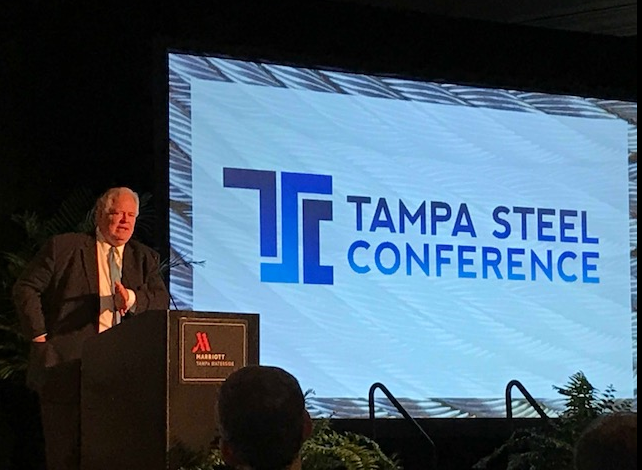Government/Policy

February 22, 2018
Aldonas: Section 232 Recommendations 'Ill-Served' President Trump
Written by John Packard
Grant Aldonas believes Wilbur Ross “ill-served the president” when he released Section 232 recommendations that don’t address the real issues: curbing global steel overcapacity and dealing with Chinese illegal business practices. A keynote speaker at this year’s Port of Tampa Steel Conference, Aldonas should know what he is talking about. As a former Undersecretary of Commerce, he oversaw steel trade policy from 2001-2005. He is now a consultant and Principal Managing Director of Split Rock International.
For those of you not around the industry during 2001-2005, they were among steel’s most turbulent years. Almost half of the industry was in bankruptcy. Wilbur Ross, as a billionaire investor before he became a politician, came along and bought the distressed assets that became the International Steel Group, which he later sold to Mittal. And there were many trade initiatives taken to help the industry.
Aldonas believes the U.S. government is embarking on the wrong path with its proposed Section 232 remedies, claiming national security concerns. He provided an example to make his case.

He also questioned some of the “facts” presented in the 262-page document released by the Department of Commerce, calling it “word salad,” a term he learned from his twenty-something son that is used to justify an outcome.
Aldonas also spoke about what happened in 2001 when the Bush administration used the Section 201 powers to block foreign steel without a complete understanding of the repercussions on international trade.
He questioned if the government understands how the Chinese are going to use a Section 232 decision by the U.S. for their own benefit. How will the U.S. defend its actions before the World Trade Organization?
There are two things countries want to accomplish when negotiating trade deals: to eliminate barriers and to create certainty for the market. If the U.S. issues quotas or tariffs on steel (or aluminum), the government will have violated these two basic principles. “The ramifications of it [232] are profoundly negative,” Aldonas told the group in Tampa, adding that 232 was working at “cross purposes” and would negatively affect the economy.
His recommendation is for the U.S. to go after China for violations of intellectual property and to enlist the help of the rest of the global community to unite against the Chinese free-trade infractions. China’s model is to steal trade secrets – like how to make advanced high-strength steels – and provide that information to their steel mills, which then become major competitors on products they did not develop on their own. The world is looking for transparency out of China and elsewhere around the world, he said.
Aldonas believes President Trump should defer action on 232 and that all American companies should be actively involved with their elected government officials and let them know how they feel about how 232 could impact their business (and their community).







